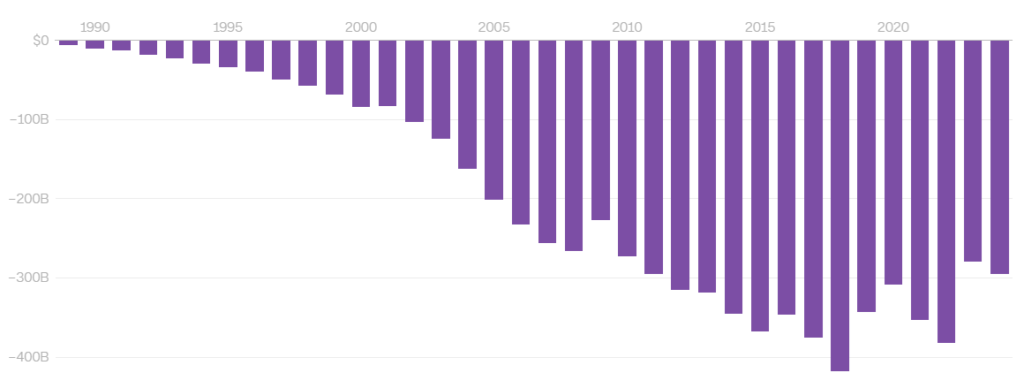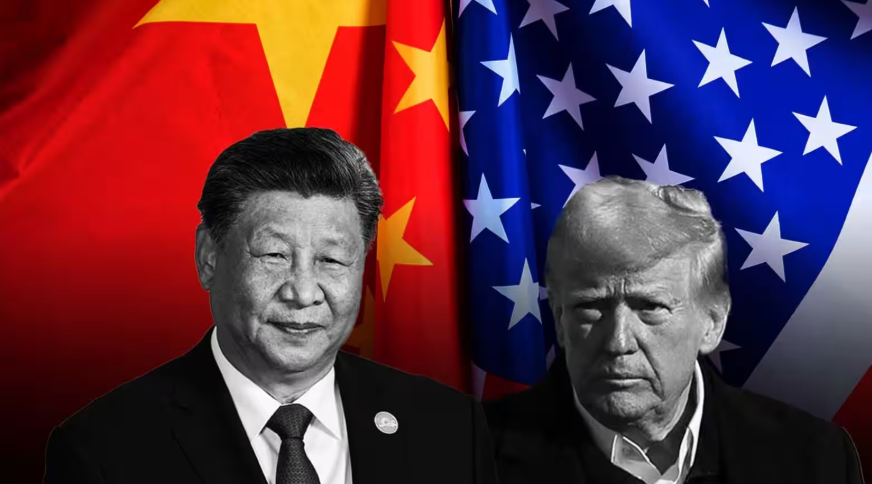China declared on April 4, 2025, the application of 34% tariff on all the United States (U.S.) imports, effective April 10, in a notable rise of trade tensions between the world’s two biggest economies. This action directly replied to U.S. President Donald Trump’s recent tariff rises on Chinese goods (for a balance perspective, see the chart below on the US trade balance with China), which raised the average rate on Chinese imports to almost 70%. Beyond the immediate economic repercussions, targeting all U.S. imports without exception signals China’s unwillingness to cooperate with U.S. trade pressure.

China’s comprehensive retaliation to all U.S. imports marks a break from the previous restrained response to U.S. tariffs. Significantly, the response is both a political statement and a strategic maneuver showing a shift in China’s position on the global stage as well as in domestic politics.
China’s Custom Tarrif Commission of the State Council stated that Beijing’s assertive response is due to the “U.S. move is not in line with the international trade rules, and it is a typical unilateral bullying practice.” While implementing the countermeasures, Beijing demonstrated its willingness to defend its commercial interests while also asserting its position in the international arena. The imposition of a blanket 34% tariff is thus more than just an economic countermeasure; it is also a strategic move reflecting broader geopolitical trends.
Apart from its bilateral relationship with the U.S., China’s strategic retaliation will not only impact but also highlight its influence in shaping the global economic order. A potential full-scale trade war and its ramifications will put nations in a difficult position—nations will increasingly find themselves navigating complexity and seeking methods to offset the negative consequences of the escalating trade war between the United States and China. On the other side of the equation, the U.S.-China trade axis will also push for a change/shift toward a more multipolar trade environment.
On a trend observation, China’s action is not only a reflexive reaction, or just retaliation, but also a calculated move reflecting the country’s strategic actions against rising trade tensions. China’s assertion of economic interest and agency not only addressed immediate issues, but also influenced the broader discourse on global trade standards and power structure.
About the Author: Augustine R. is an independent analyst and researcher specializing in international relations and geopolitical affairs. With a background in international relations, trade, and development, his interests span global security and economic diplomacy, while his focus includes the China-India-Myanmar strategic triangle, Sino-Indian relations, and the foreign policies of the U.S., India, and China. Click here to view all articles by the author.
Featured Image: Nikkei montage February 10, 2025/Source photos by Reuters)
Read Related Insights & Analysis
Trump’s Foreign Policy: Art of the Squeal

